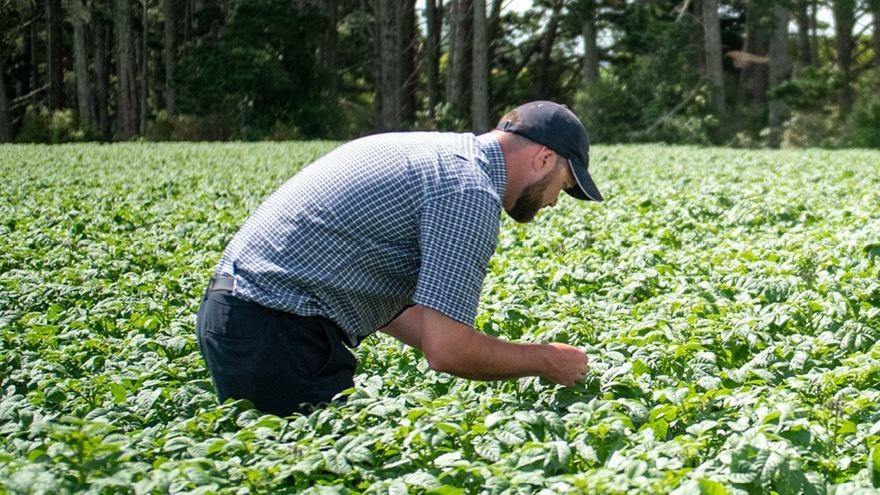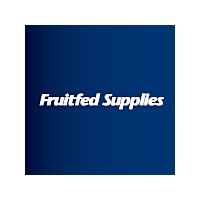
Growing Fruitfed Supplies' technical expertise
The Fruitfed Supplies Technical Extension team has been in operation for just over two years and, during this time, a key focus has been to help lift the overall technical expertise of Fruitfed Supplies Technical Horticultural Representatives (THRs) and Customer Service Representatives.
The flow-on effect of this technical knowledge benefits and supports growers around the country, says Pukekohe-based Daniel Sutton, Technical Specialist for vegetable crops. Technical training for Customer Service Representatives in Fruitfed Supplies stores has been taking place over the past 18 months, as Covid allowed, and Daniel says the feedback has been positive.
“Helping our people to develop a greater understanding of the horticultural sector and the challenges faced by growers means we can respond to grower inquiries more quickly and accurately, which benefits all involved.”
Daniel explains: “The creation of our team of Technical Specialists with our focus on extension learning meant the Research and Development (R&D) team could undertake more replicated trials to create more useful data for us to share with growers, industry bodies and our own staff.”
Daniel says the two teams work closely together. “There’s feedback in both directions as we collaborate on which trials are being conducted and how to present the results. The R&D team is looking at the product pipeline, the products and solutions that are still some years away from being available. We have input into what products are used as the comparisons, and how products are being used to ensure it’s relevant to growers now and in the future when those trialled products may become available.”
Fruitfed Supplies has always had a strong technical focus and Daniel says the creation of the Technical Specialist positions demonstrates how the business has essentially double-downed on this investment in technical capabilities.
“Our R&D work elevates the detailed data we have available, and the extension team is able to share this greater resource of research, knowledge and data through grower meetings and training for THRs. We also review research from external sources as to its relevance to Fruitfed Supplies and our customers so the main details can be shared.”
With nearly 11 years with Fruitfed Supplies under his belt, Daniel has seen the ever-increasing regulatory considerations that food producers must comply with.
“Export markets are getting stricter on allowed product residue levels and product use in a crop. We grow crops under New Zealand conditions but have to meet the requirements of an export market which may have different product options than we do.”
An example of this is the use of mancozeb use in onions. It’s the backbone of New Zealand downy mildew fungicide programmes, but most European markets now have restrictions on mancozeb use.
“A lot of resources are going into helping identify new product alternatives and different use patterns of currently approved alternatives. We’re working alongside Onions New Zealand to help refine tools like disease prediction and risk models to use these products more effectively and we’re helping with trial work on alternative products.”
Daniel says his relationship with industry organisations like Onions New Zealand and Potatoes New Zealand has evolved over the years. “It’s come about by getting involved, attending events and field days, contributing to industry conversations and demonstrating how we can support growers in those sectors.”
According to Daniel, Fruitfed Supplies services like crop monitoring are invaluable. “You need data to make informed decision about when to apply a control product. You need to know what’s happening in your paddock across a period of time, how pests, diseases and beneficials are changing. As growers are required to manage agrichemical use more carefully, we see softer, more biological products being targeted on the correct pest life stage or disease pressure level in the paddock.”
The need to improve efficiencies across every aspect of vegetable crop production won’t stop. “Questions like how much fertiliser does a crop actually need to deliver a good yield and how we protect the crop fro m this disease or that pest efficiently and effectively are becoming more topical. More than ever, we need to look after our growing land, its soil biology and structure. Everything starts with the soil. Crop rotation, cover cropping, green manure, applying compost, micro level biology to optimise soil around plants – these are the tools we’ll see being employed more frequently in the future.”
Technical advice is available from your local Fruitfed Supplies Technical Horticultural Representative or Fruitfed Supplies store.
